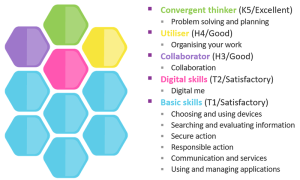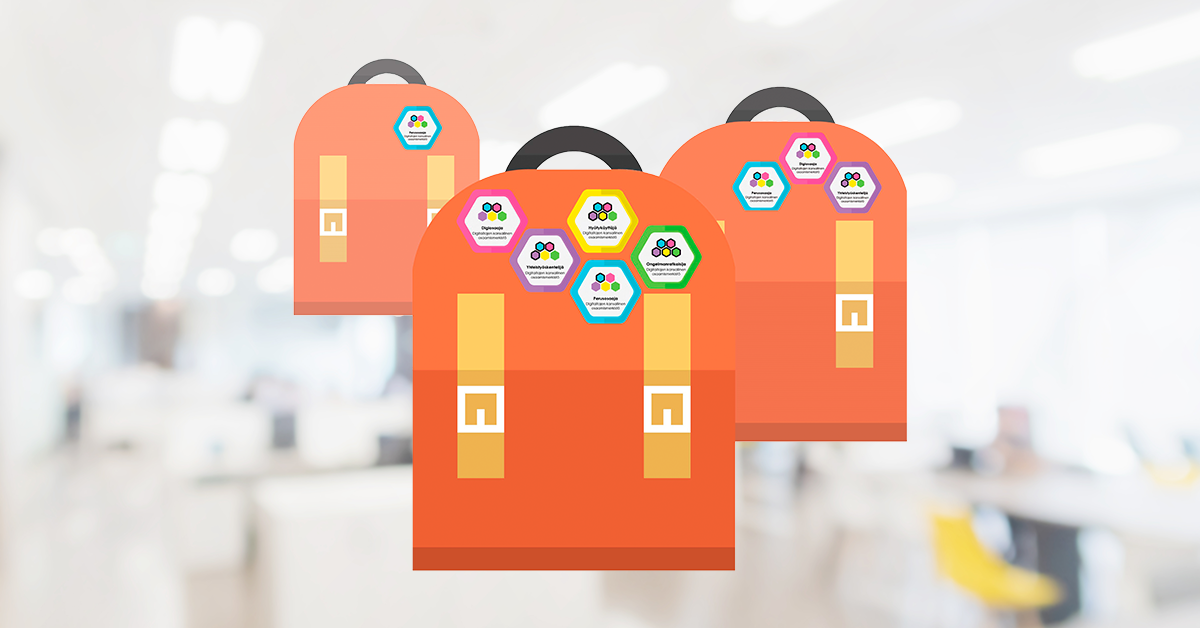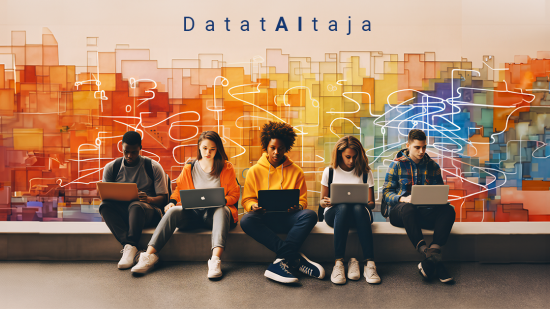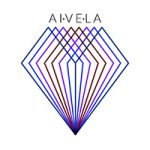The development, adoption and implementation of new practices are major steps for both organisations and individual teachers. Students and education stakeholders also need advice and support.
Developing concepts
Micro-credentials, blockchain degrees and open badges are examples of new concepts related to competence-based approach and continuous learning.
What is exactly meant by these terms varies not only from country to country but also within countries. The key thing is for us to create common ways to interpret competence descriptions in a uniform way in various situations.
Smaller fractions of competence
The European Commission’s preliminary definition of micro-credential is a proof of the learning outcomes that a learner has acquired following a short learning experience. Finns have been agile in developing short-term training that promotes employment and continuous learning.
Unit structure of vocational qualifications and open university of applied sciences education are established practices of short-cycle education and training already available.
More opportunities will be available within liberal adult education as recognition of prior learning is developed. They are no replacement for degree education, but may be included in or supplement them after graduation.
Ownership to your own competences
The proposed definition for micro-credentials emphasises the learner’s ownership to their competences and related documentation. In international research, digital open badges are described as micro-credentials that serve a clear function in the knowledge structure of the learning process and outcomes, with the learner in the centre.
Finns have been agile in developing smaller fractions of competence, a type of short-term training that promotes employment and continuous learning.
Sanna Brauer, Oulu University of Applied Sciences (Oamk)
Macro-credentials are used to communicate about achieved competence levels and complete study modules. The benefits of open badges have been recognised in Finnish development work, and they are described as the necessary “other side of the coin” regarding competence points or credits.
In terms of continuous learning, we should develop not only study opportunities (smaller modules), learning record stores (such as the Koski database), but also alternative ways to describe and document competences.
Recognising competences for working life needs
Changes in working life, new competence requirements and problems with confrontation are globally recognised challenges. The preliminary European definition of micro-credentials relies heavily on formal education.
Open badges are used to identify and recognise competences that are important to the renewal of working life, regardless of how they were obtained. The Ministry of Economic Affairs and Employment and Ministry of Education and Culture have set up a working group to implement a programme for sustainable growth. The goal is to promote and provide guidelines for the creation of tools and procedures for the recognition of competences obtained in workplaces and in training that is not part of a formal education system.
The working group will complete a proposal by the end of 2022 on, for example, the potential expansion of frameworks for degrees and other competence modules, and the development of other competence descriptions.
This article was first published in Finnish in TIEKE’s Tiedosta magazine 2/2021.
Learn about the open-badge constellation of digital skills
 The Competitive Skills open-badge constellation provides a model for the recognition of digital skills. The constellation includes a five-stage model for the recognition of digital skills.
The Competitive Skills open-badge constellation provides a model for the recognition of digital skills. The constellation includes a five-stage model for the recognition of digital skills.
Skills badges can be obtained as part of training, but also by completing an application to demonstrate the necessary skills regardless of where the skill was obtained. The skills badges are intended for students, teaching staff, liberal arts professionals, employees and customers in any other field, and indeed any member of the general public.
Read more about changes to the recognition of prior learning
Brauer, S., Halttunen, T., Hartikainen, A. & Juntunen, E. (2021). Osaamismerkit työelämässä. ePooki. (in Finnish) Oulun ammattikorkeakoulun tutkimus- ja kehitystyön julkaisut 27.
Brauer, S. (2019). Digital Open Badge-Driven Learning – Competence-based Professional Development for Vocational Teachers. Acta Universitatis Lapponiensis, 380.
Ministry of Education and Culture. (2021). Parliamentary reform of continuous learning.
Finnish National Agency for Education. (2020). Tutkintojen viitekehykset ja pienet osaamiskokonaisuudet (micro-credentials). (in Finnish) Online seminar on 5 October 2020.
Ministry of Education and Culture. (2021). Osaamisen tunnistamisen työryhmä. (in Finnish)
Ministry of Finance. (2021). Sustainable Growth Programme for Finland.











